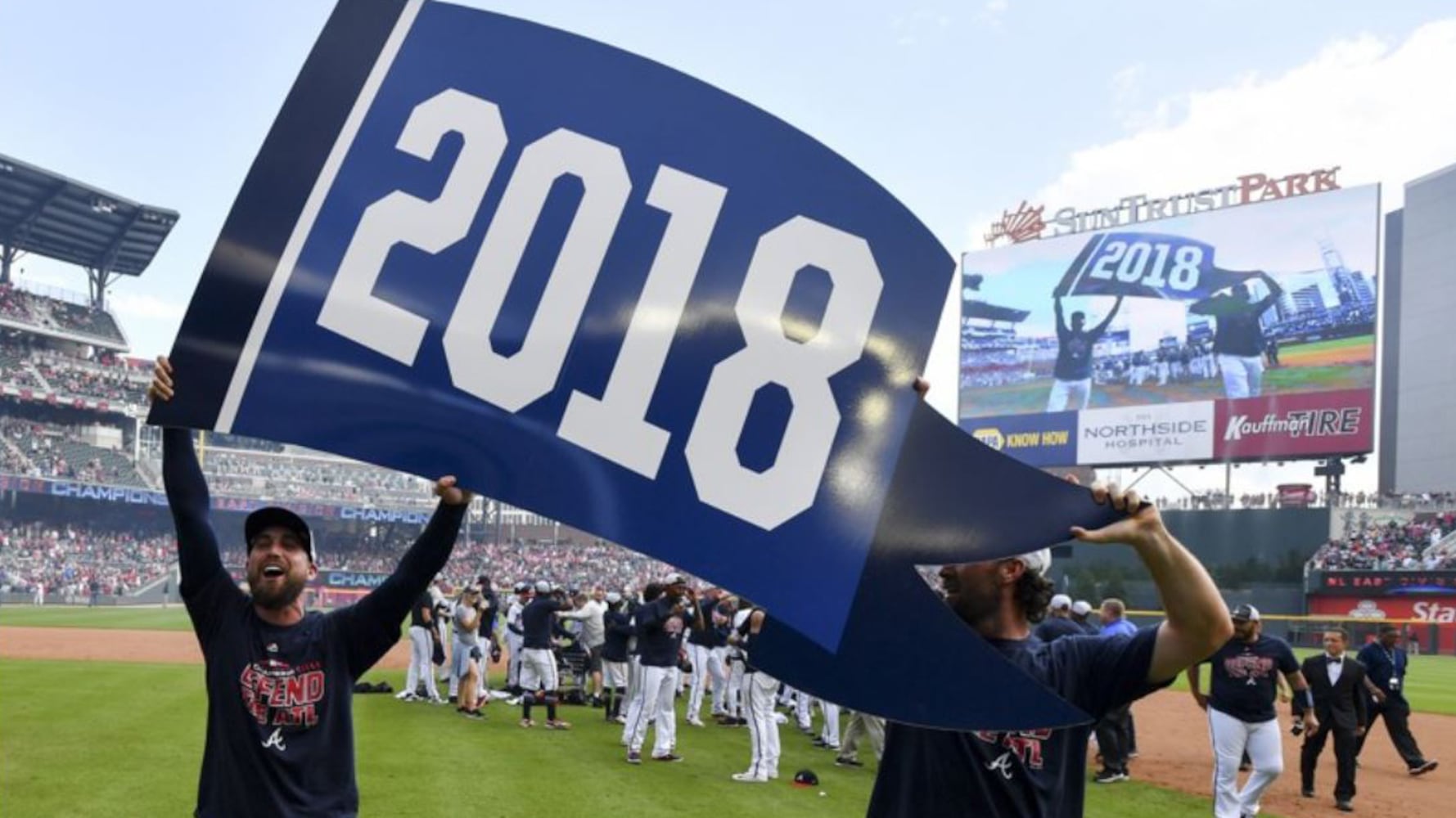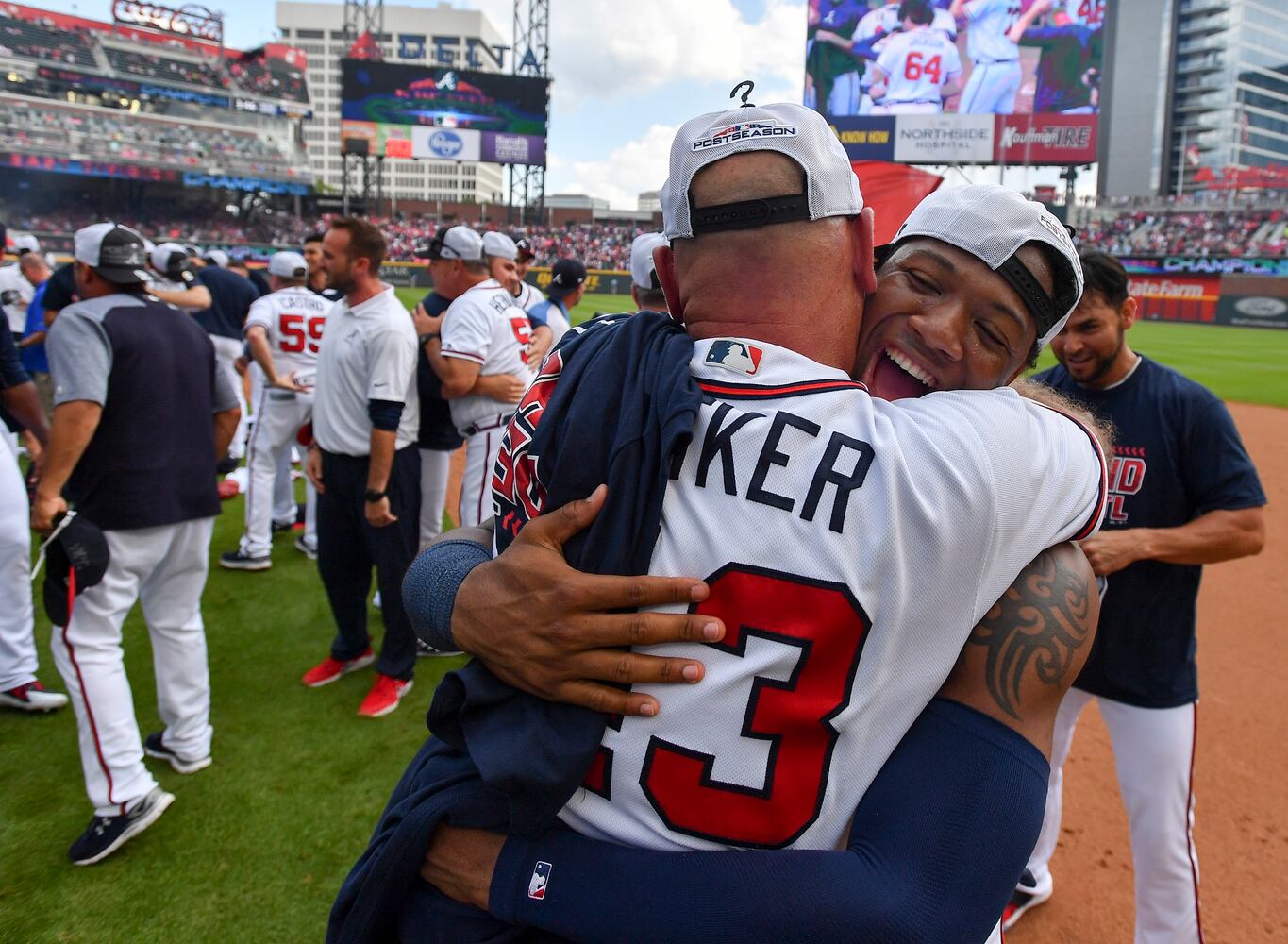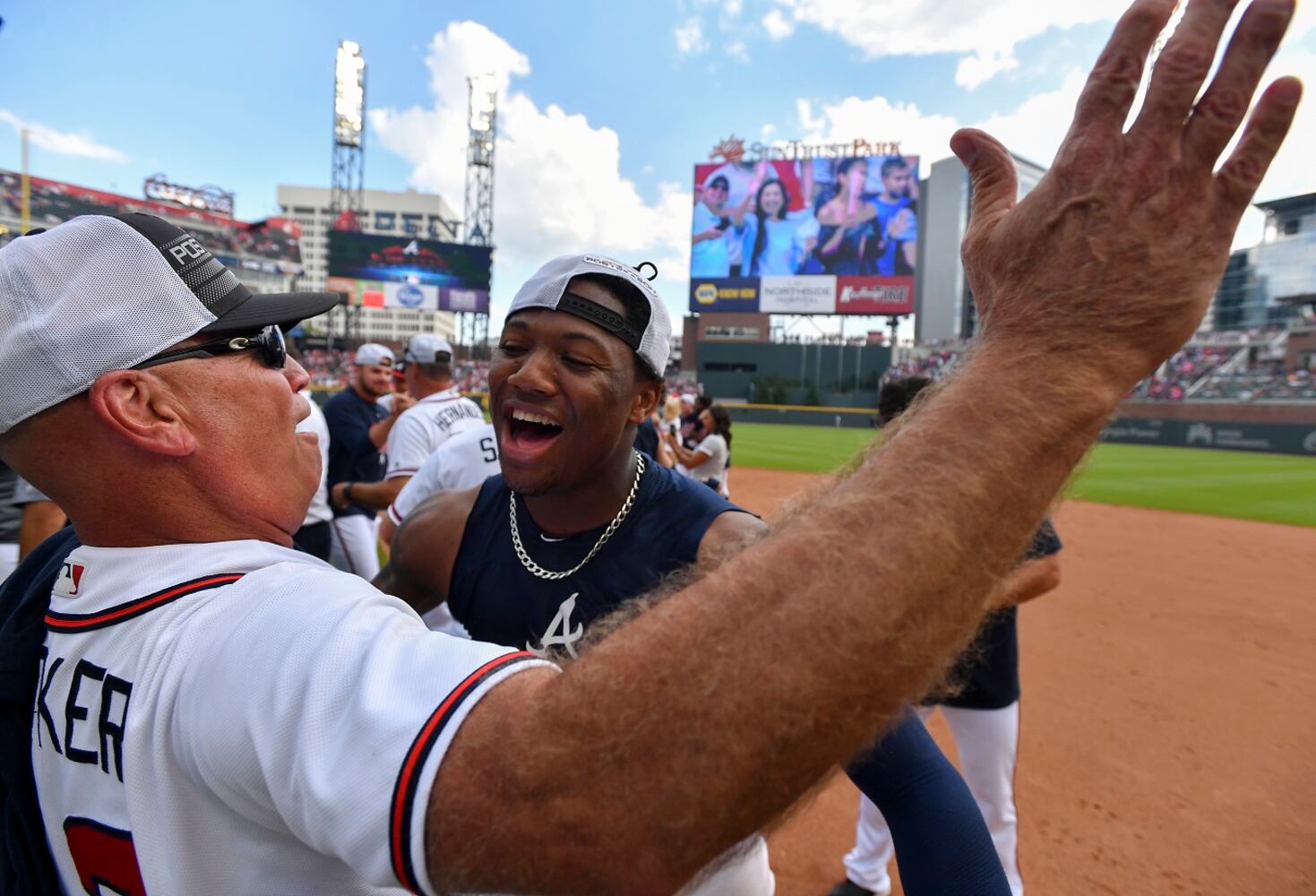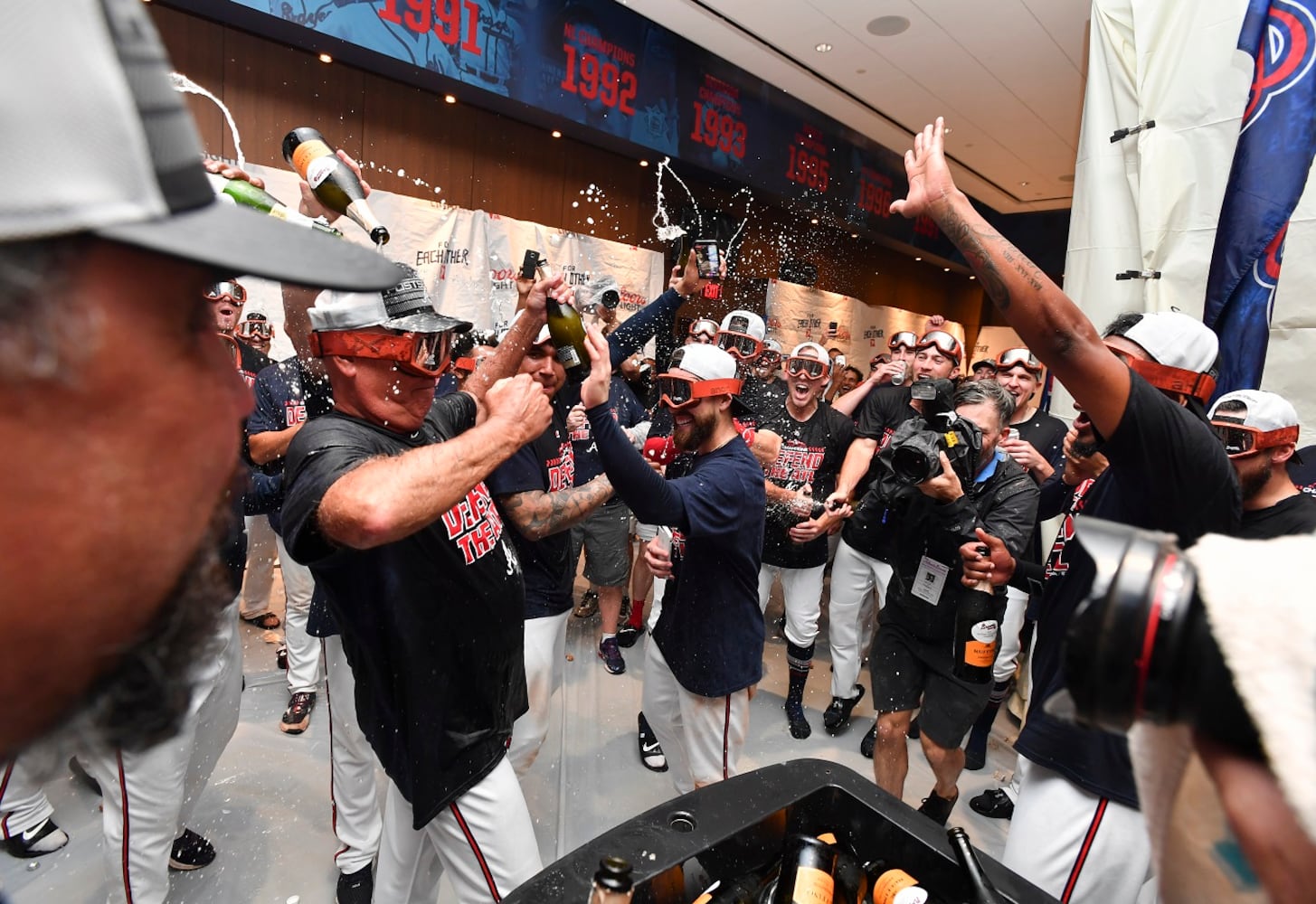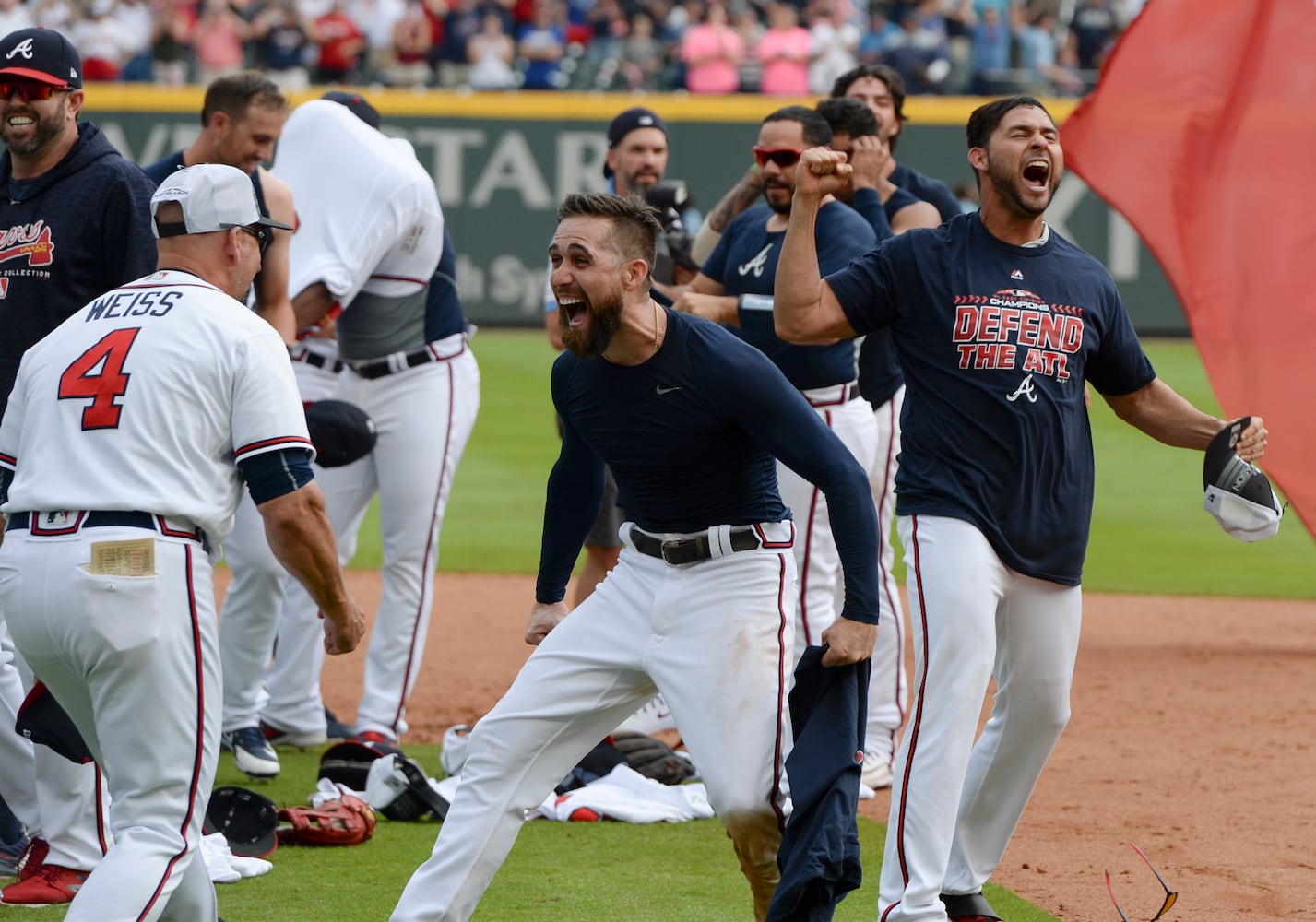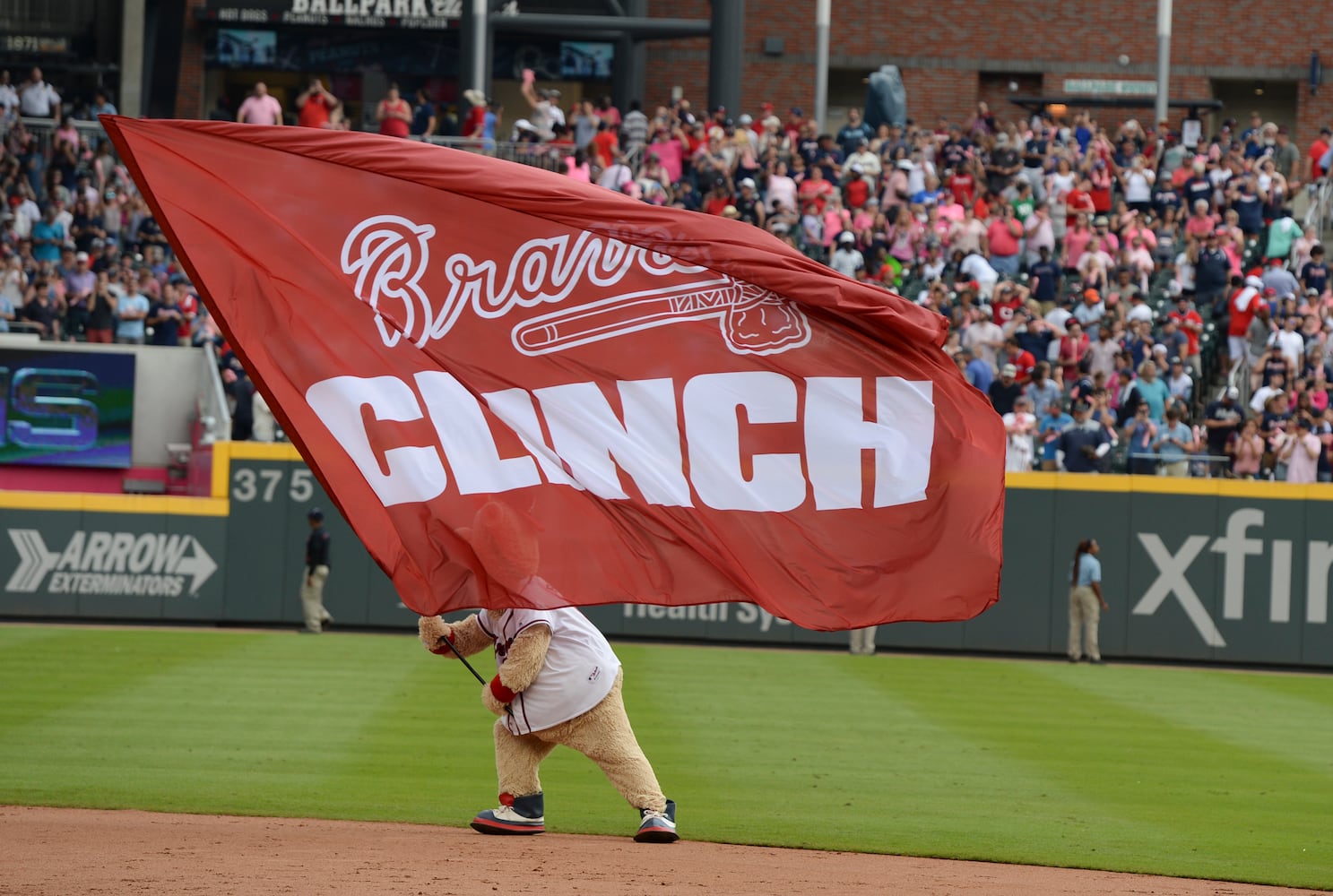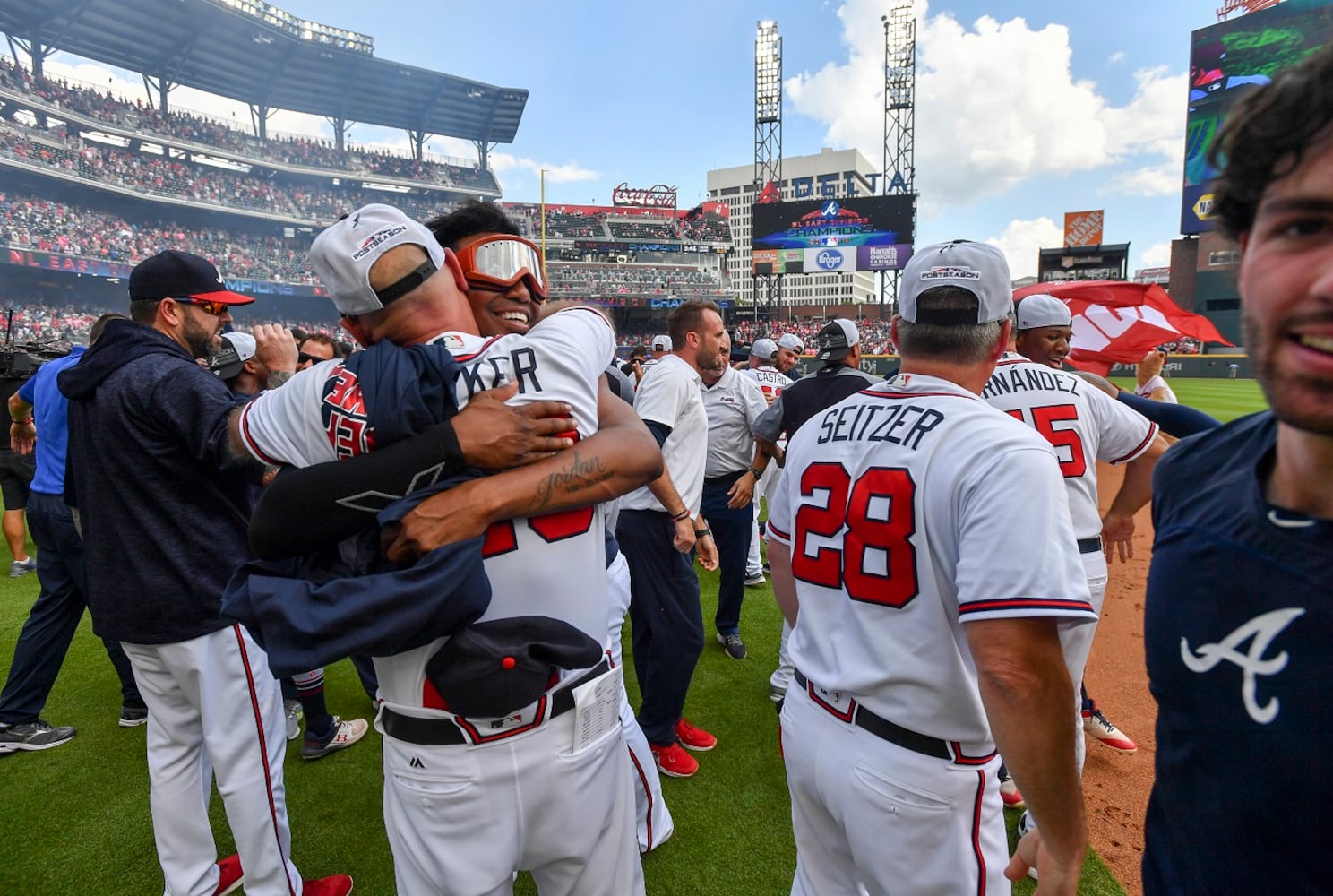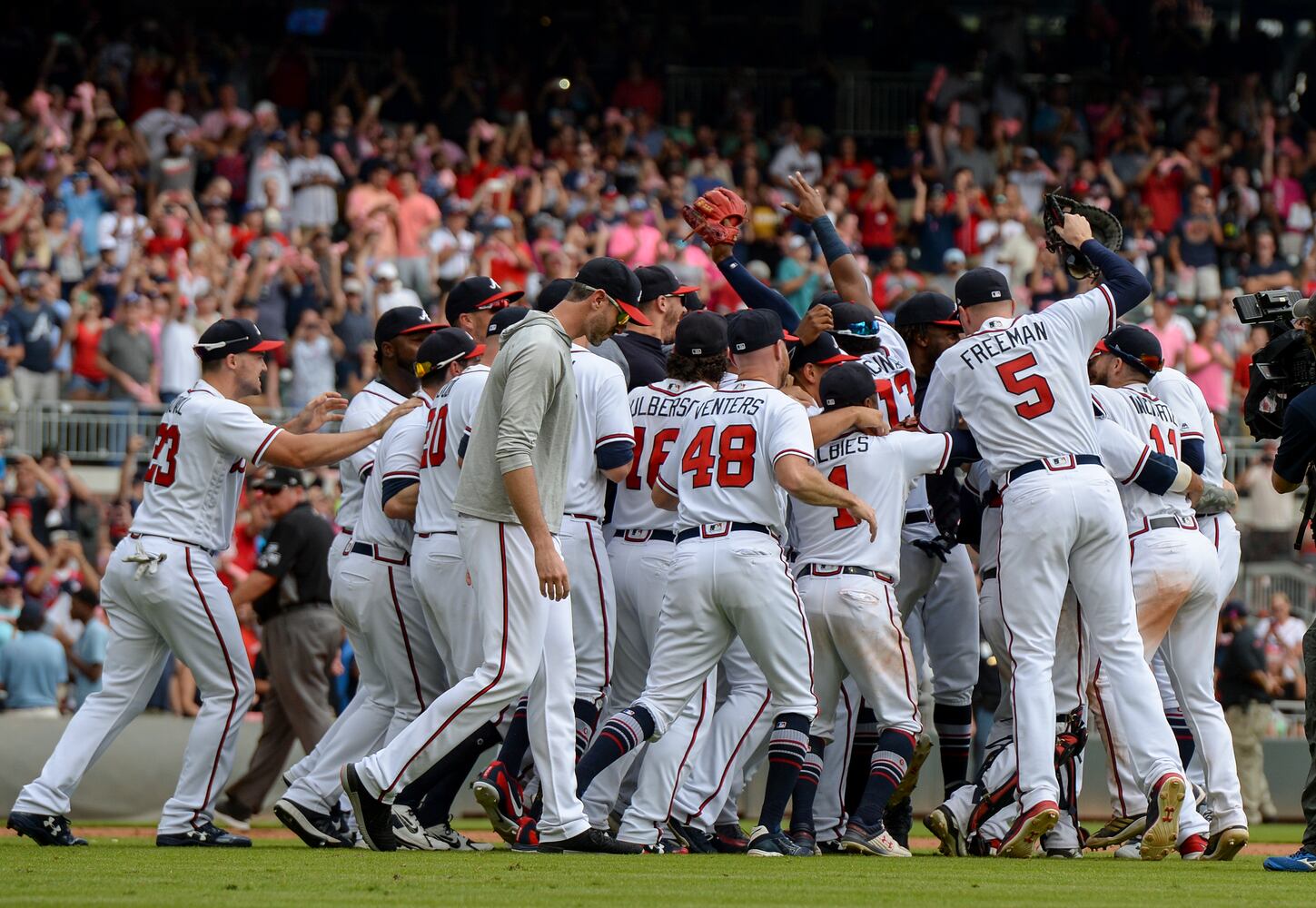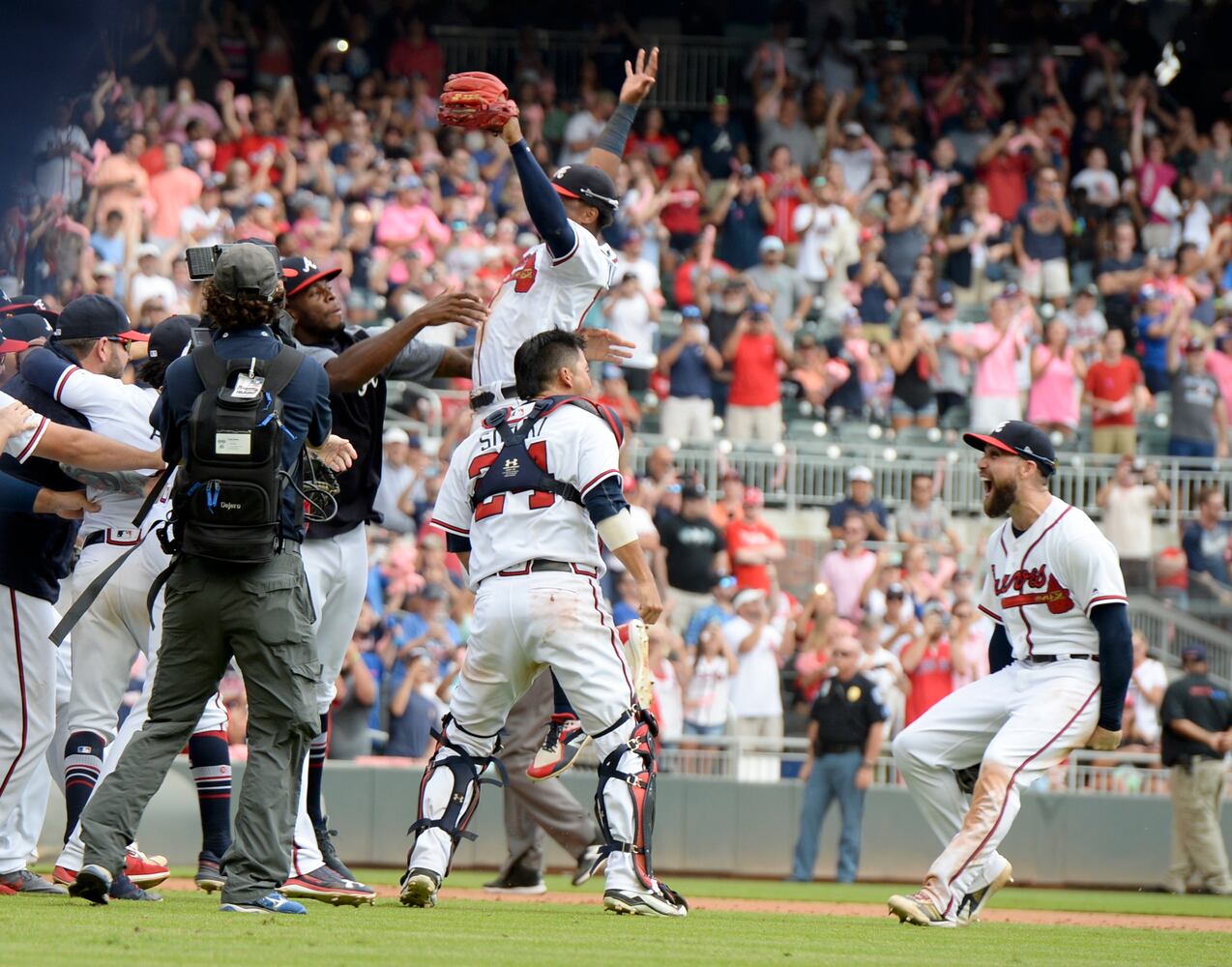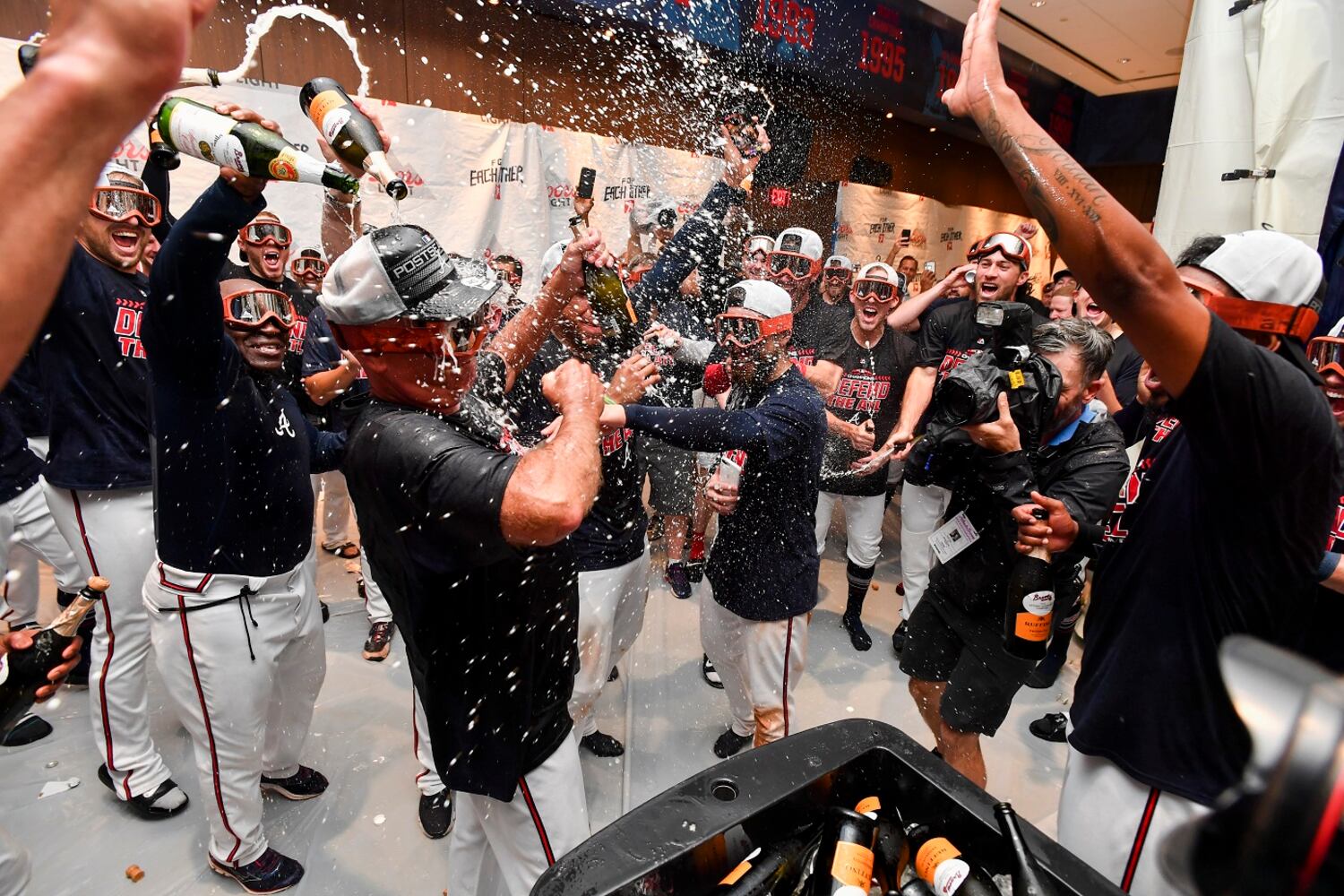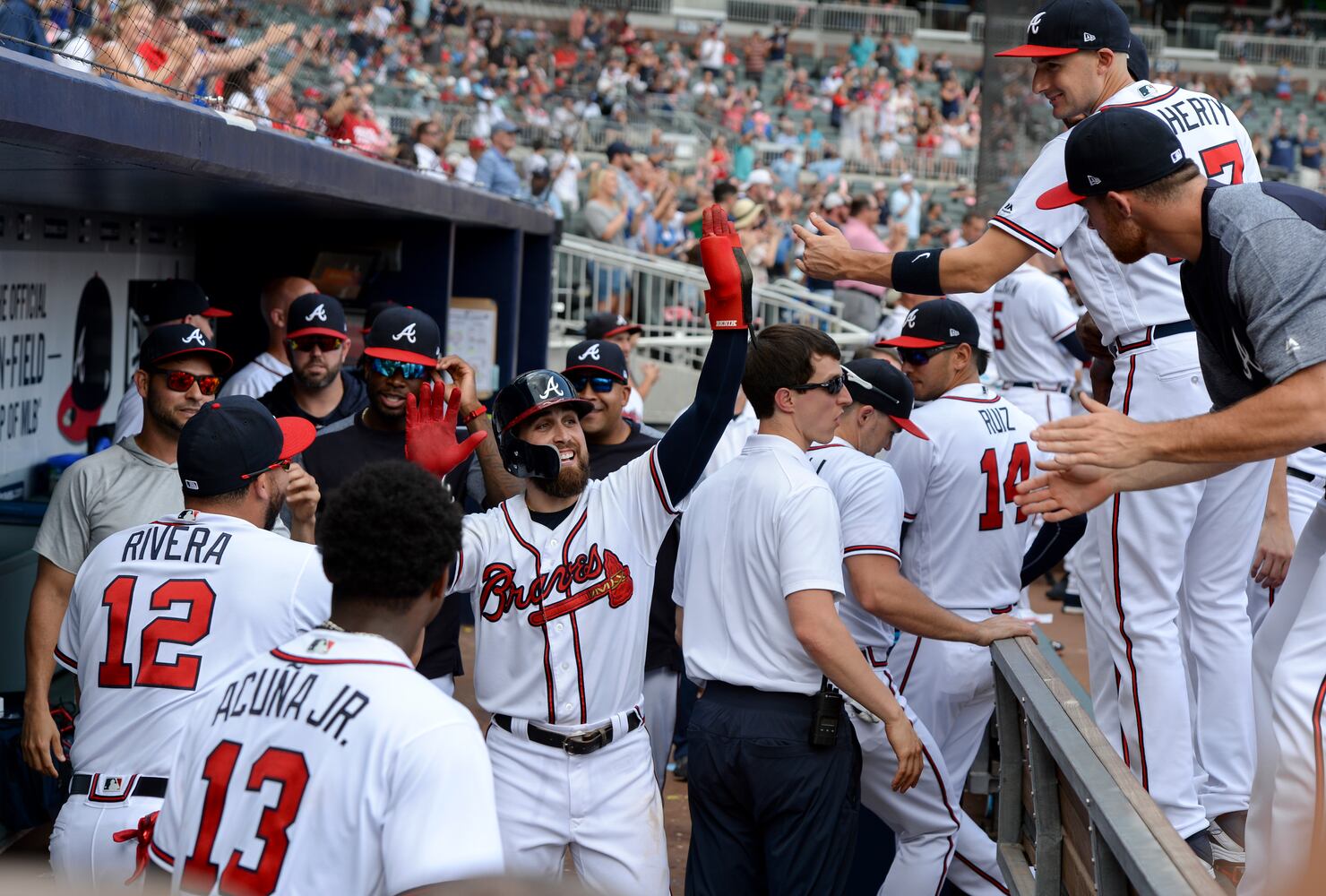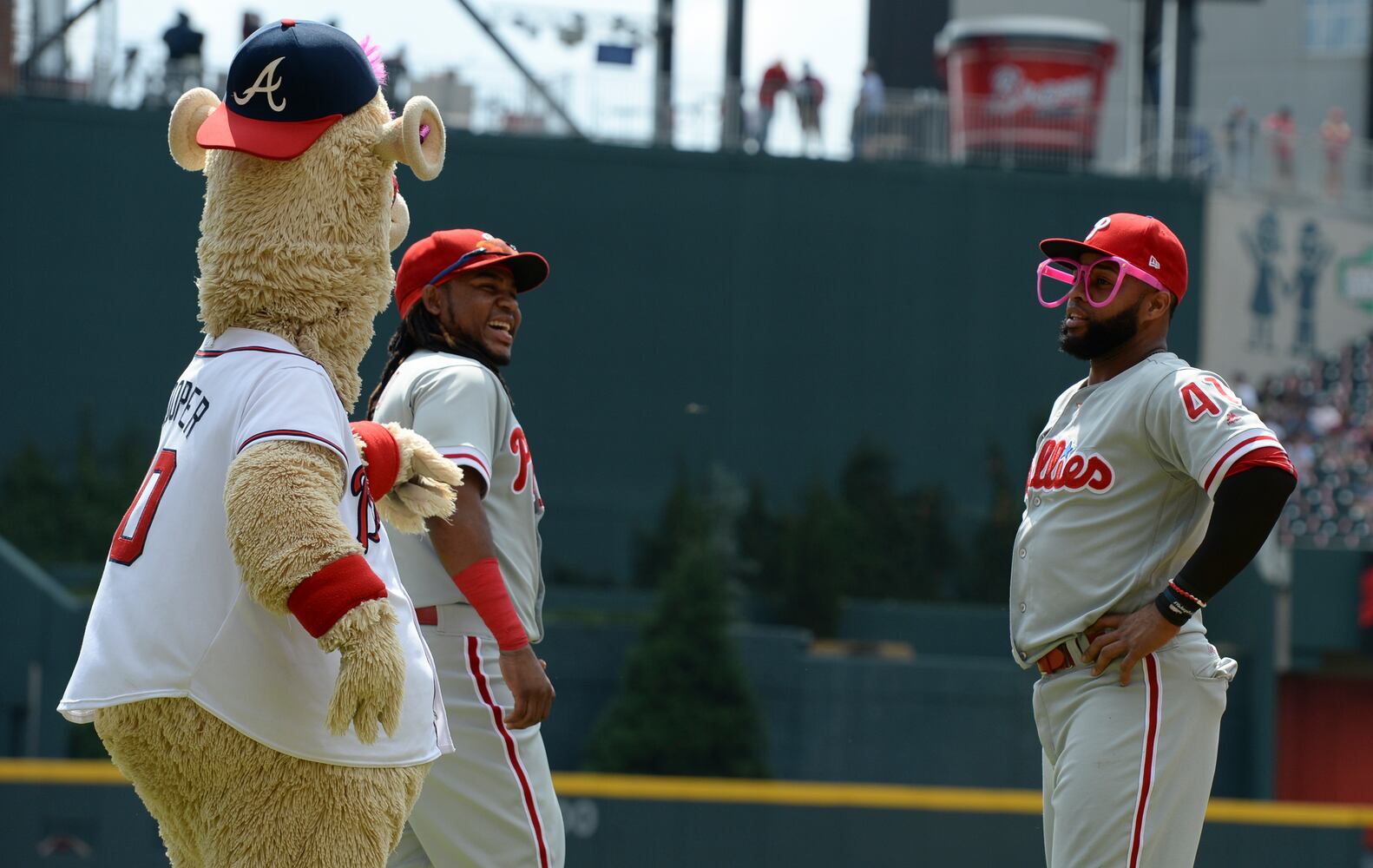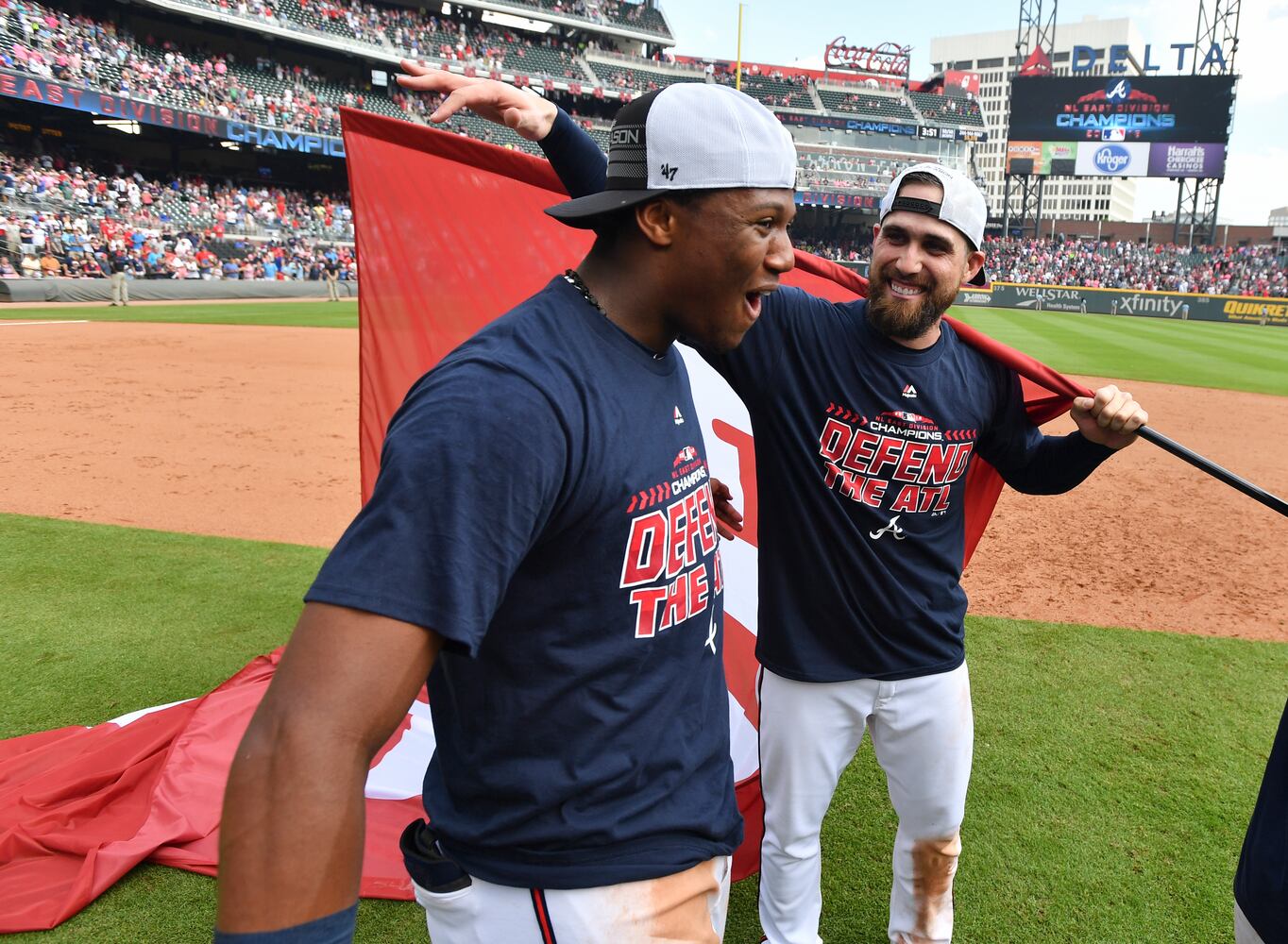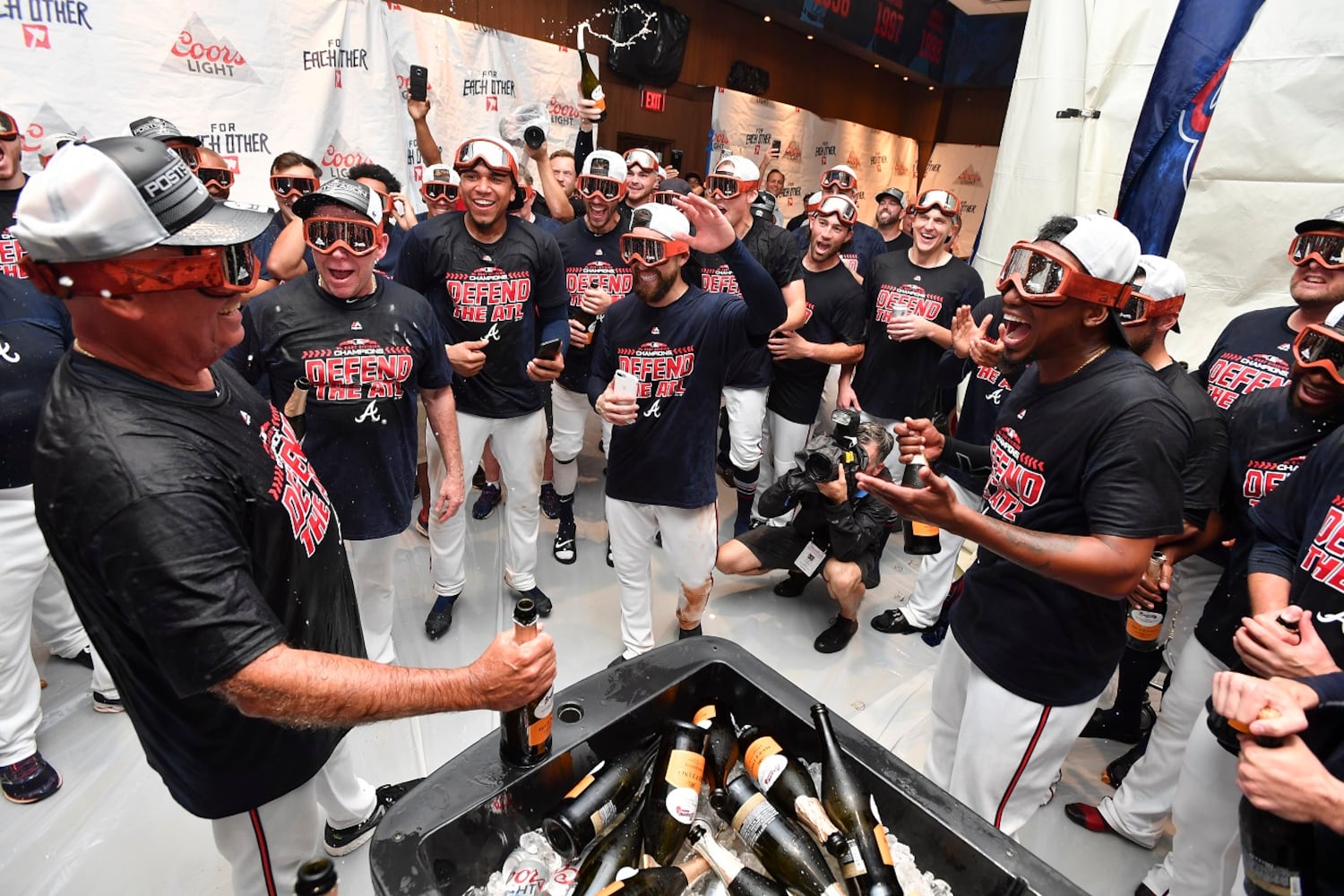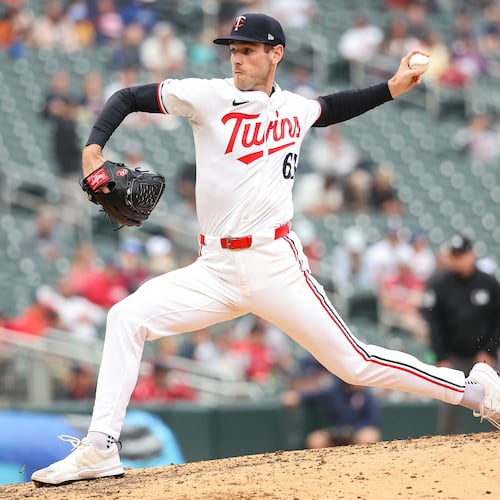Brian Snitker devoted 42 years to the Braves. On Saturday afternoon, the latest pinnacle of his commitment was realized.
The manager, who took over as interim in May 2016, hugged bench coach Walt Weiss after the final out of the Braves’ 5-3 win over the Phillies, which clinched the National League East title.
Snitker was filled with emotion, fighting off tears during his postseason interviews. His wife, Ronnie, allowed her tears to flow. It was a defining moment in their lives, one that’s been over four decades in the making.
“I probably haven’t even begun half the emotions I’m going to have later when I sit down,” Snitker said. “It’s really true. We really did it. Most of the guys, I told them ‘Man, we did it.’”
He joined the Braves as a catcher in 1977, playing in the minors for four seasons. He’s managed a conglomerate of minor-league affiliations, including Richmond, Mississippi, Durham and Macon.
Snitker was the team’s third base coach from 2007-13, under Bobby Cox and Fredi Gonzalez. He began managing Triple-A Gwinnett in 2013 before rejoining the major league club as Gonzalez’s interim replacement.
“This means everything,” said Snitker, who’s the heavy favorite for manager of the year. “You know, you kind of sit back and wonder what this is going to feel like. When I was here as the third-base coach, we won the division, the wild card. It’s great. You wonder as a manager how it’ll feel. It’s even better than I anticipated.”
A placeholder, a temporary solution, just a minor league manager; Snitker rarely was viewed as the long-term answer. Even last season, it appeared a managerial change was likely to occur before an MLB investigation eroded the previous regime.
Enter new general manager Alex Anthopoulos – and the assumption that he would bring in his own manager in 2019. Inherited relationships usually don’t last.
As it turned out, Snitker’s player-friendly style was just what the 2018 Braves needed.
“I respect that man so much,” shortstop Dansby Swanson said. “He’s done so much for me, to continue to allow me to learn. He really appreciates good baseball. He lets us be professional. He doesn’t try to micromanage. He lets us do what we do. That’s a big reason why we’re here.”
Even Snitker had questions about what his team was doing, as did most others. Eventually they’d collapse or just tail off. The Nationals could wake from their slumber. The Phillies led the East at the All-Star break, maybe they pull away.
“I ran through the first two to three months wondering,” Snitker said. “‘Man, we’re pretty good. Are we good enough to take this to the end?’
He referenced several road trips that defined the team’s season, none more so than their last, when they won six of seven in Arizona and San Francisco to build a hefty division lead.
Since Snitker took over, the Braves have an MLB-high 56 wins in their final at-bat, 20 of such this season. The players repeatedly endorse their manager. He’s credited with the loose atmosphere, where players are able to relax even in the tensest situations.
“He’s such a nice guy to be around,” outfielder Ender Inciarte said. “He’s just a great person and great manager too. We’re lucky to have him. I know a lot of times we feed off the type of person he is. No matter what what’s going on on or off the field, he’s the same guy. He wants you to be the best version of yourself.”
What Snitker has done worked. He and the Braves are postseason bound. The Braves haven’t just won the NL East, they won it somewhat comfortably.
The former minor league manager stood in his major league clubhouse, alcohol painting the floors and walls, his players tearfully jubilant and him looking upon what he helped orchestrate.
He’ll manage in October. After giving so much of his life to the Braves, he’ll take the dugout for his first game as a postseason manager.
With his team on the verge, he couldn’t leave SunTrust Park. He slept on the bunk beds in the clubhouse Friday – still a good night’s sleep, he opined, adding he woke up refreshed.
Snitker’s had a few expressive moments this season. He fights for his players, supports them through slumps, defends them through criticism. His players responded with a postseason berth.
“You put a lot into this,” he said. “It’s a long year. You start in February, and it comes down to this. There’s a lot that goes into this. It’s a grind and when you bring it to a good conclusion like this, it’s emotional.”
So his 42nd grind might be the one that awards him with baseball’s most prestigious honor for a manager, a worthy punctuation on his adult life’s work.
About the Author
Keep Reading
The Latest
Featured
